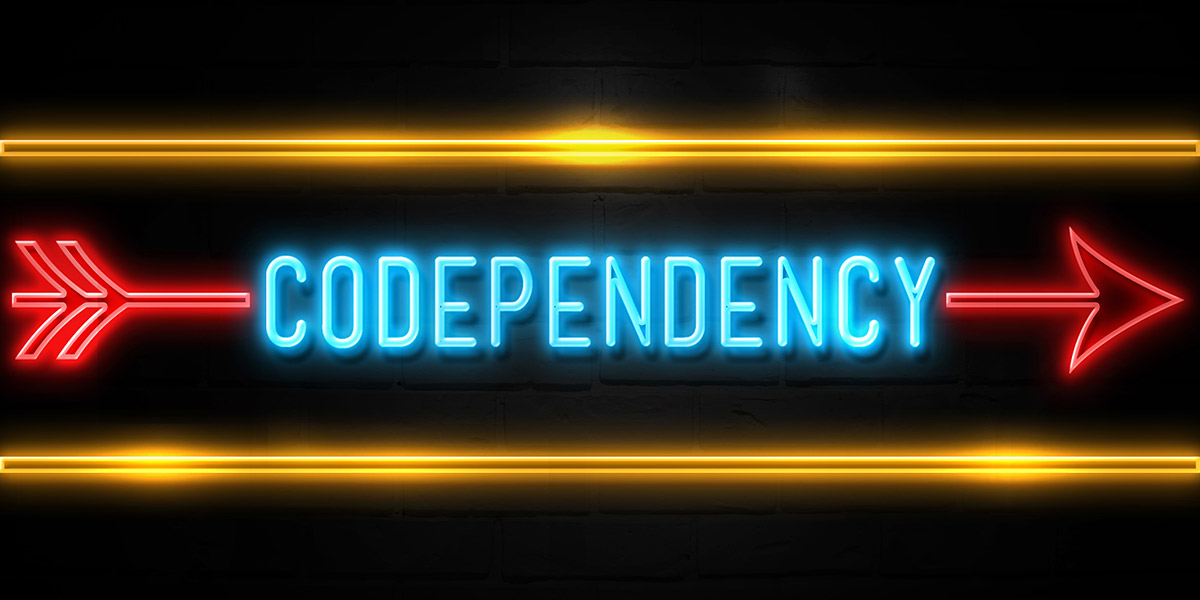Codependency is a term we hear thrown around a lot and it can enable destructive patterns and behaviors and create a dysfunctional relationship. When we say codependency, this means one partner responds to the extreme demands of the other partner. These demands can be emotional or physical and can strip away a lot of time from the codependent partner’s life.
Although it may feel like caring for the partner, codependency can actually enable a loved one to continue destructive patterns and foster their use of drugs and/or alcohol. This kind of relationship is not always a spouse or significant other. A codependent partner can be a parent, child, or other person who feels they must take on the role of a caregiver.
Codependency carries risks for the addicted and codependent partner. And the effects can create some serious consequences. Probably the most severe is enabling the partner with addiction or substance misuse disorder. For the codependent partner, this can appear as helping their loved one but perpetuate the spiraling cycle of codependent behavior and drug and/or alcohol addiction.
Here, we’ll discuss some of the characteristics of codependency and how to recognize and set boundaries that can help foster and restore a healthy balance in the relationship.
Characteristics of Codependency
Codependent behaviors can affect a person’s self-image and ability to define needs, set goals, and establish boundaries in a relationship. Often, a person with codependency unknowingly enables a loved one with addiction and fears rejection when and if addiction issues resolve. The following are some of the signs and symptoms of codependency.
Lack or absence of boundaries
Boundaries are a hot topic today and, for many codependents, there is a clear lack of boundaries for others and/or self. They may also experience difficulty in identifying their feelings and communicating their needs. This absence of boundaries often results from fear and seems an effective way to avoid conflict and rejection, earn approval, and show their concern and commitment for person and relationship. This all comes at the expense of both people and creates a dysfunctional relationship.
Low sense of self worth
The over reliance on other’s opinions of self-worth can create a low sense of self-esteem and value. They can experience a lack of purpose and feel unlikable or unlovable. This dependency on other’s beliefs can make it difficult and overwhelming to sit with one’s thoughts and they may overthink and stress over seemingly mundane situations, such as a slower than usual text or email response.
People pleasing
Codependency can create an over reliance on satisfying the wants and desires of others while forgoing individual needs. They may have a hard time saying ‘no’ and rely on the opinions of others as a measure of self-worth. This tendency to ignore personal needs can create a sense of guilt or shame when not maintaining the codependent relationship.
Obsessive thoughts and feelings about the relationship
Codependency can create excess tension and anxiety. They may look at their phone several times per day, or even hour, checking if they missed a message or they may check in several times a day by calling. This obsession with the other partner is a double-edged sword since the check-ins create a sense of safety and security while at the same time create an undue amount of fear and compulsion.
Take on the role of caretaker in a relationship
Codependent men or women feel validated when putting other’s needs above their own, even when it can mean neglecting their own needs. Caretaking brings about a sense of security in the relationship, and can remind the person how much they need their partner. This tendency of neglecting personal needs further escalates the need for outside approval from others.
How to Treat Codependency
Recognizing the symptoms of codependency is the first step, and from there, a person can define personal needs and preferences and draw healthy boundaries. This can help the individual derive a sense of purpose and worth based on their own needs.
Counseling and alcohol drug treatment programs can also help identify the signs and offer support and resources that not only addresses addiction but how the dynamics of relationships can enable both partners.
At Pura Vida, we work with men and women struggling with drug and/or alcohol abuse and offer support for their friends and family. For a confidential assessment, get in touch with us by phone or online contact form.





